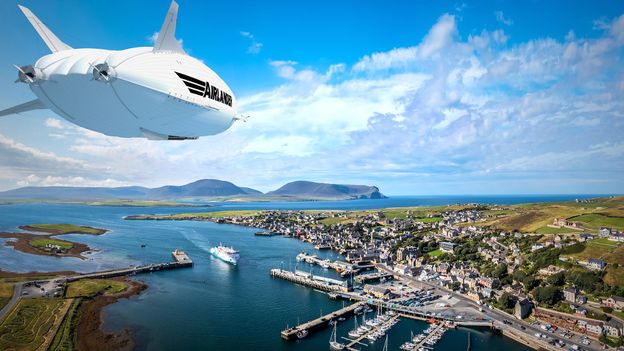The dream seems to be solar panels across the top and onboard electrolysis, and fuel cells. Then the same hydrogen that keeps you afloat is also your energy storage. A compressor to store extra hydrogen also seems like a good idea. I imagine we can make these into closed systems.
The onboard electrolysis isn’t as useful as you’d think - electrolysis is energy-intensive, you need water, acquiring water is energy a intensive, and water is heavy. Like, 8/9 of the weight of water is oxygen.
With current tech it doesn’t make sense, but in a more sci-fi sense I think it does - the sky is full of dense patches of gaseous water, commonly known as “clouds”, and if going through a cloud wasn’t incredibly dangerous for airships then they could just do that, catch handfuls of cloud, then condense it and electrolyze it. That way the airship doesn’t need to lift huge amounts of oxygen from lakes then dump it.
And if we’re speaking sci-fi, making airships stormproof is basically mandatory, they can’t outrun storms and due to their long flight-times (due to low speed), they’re more likely to encounter them mid-flight.
Airships face three main problems, AIUI:
- They’re slow (100km/h to airllanes’ 600km/h), which means their flights are ~6x as long and thus their staffing costs are 6x as much.
- Airships still have trouble adjusting their buoyancy - if they pick up/drop off cargo, they become heavier/lighter and start to drop/lift up. That causes a bunch of problems.
- Weather screws them - as you can imagine, they catch a lot of wind with their sideward profile. And by definition they’re lighter than air, which means they get knocked off course. Water ships don’t have this problem because they’re heavy as hell and literally made of steel, and of course because jet streams don’t reach sea-level. The end result is that airships tend to fair-weather flights by necessity.
#2 can be mitigated and in the future might be solved, and #1 might become irrelevant if fuel costs get high and a niche for airships appears. #3 is a killer for reliability and safety both, though - you preemptively avoid storms by just delaying the flight until the weather prediction turns in your favour, which might take weeks. It just can’t handle a schedule, because putting an airship into a storm is too risky. And if time isn’t important then you can just put stuff on the cargo ship and then a train.
Shouldn’t the balloon be black rather than white?
The “hot air” part was nonsense. Most aircraft are painted white (to reduce radiative heating IIRC) so it’s not surprising that an airship would be white too.
Probably not helpful with helium or hydrogen filled ones.



